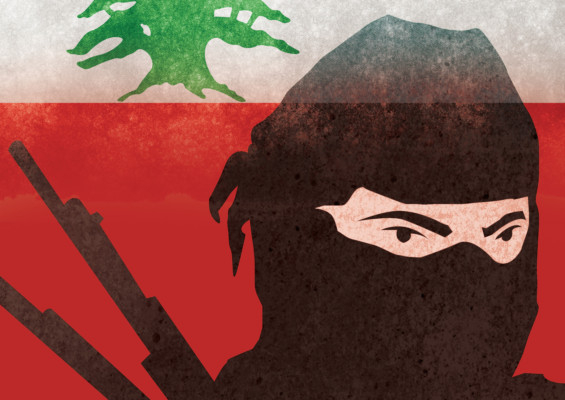
The EU has finally blacklisted the “military wing” of Hezbollah — the Shiite Islamist paramilitary movement that has become a non-state hyperpower in the Middle East — as a terrorist organisation. However, in their long and conflictual relationship with this Lebanese group, the offspring of Iran’s 1979 Islamic Revolution and Israel’s 1982 invasion of Lebanon, neither Europe nor the US seem to have worked out exactly what the self-proclaimed ‘Party of God’ is.
The usual definitions of Hezbollah are definitely ripe for revision. It has long been more than a “non-state actor” and it is no longer a mere state within the state. A reality upgrade will reveal that, by any relevant measure, its power now comfortably exceeds that of a Lebanese state it has helped turn into an institutional wasteland. Hezbollah not only has military and political power, financial might and welfare patronage from health and education to pensions and housing, all independent of the Lebanese state. It has strategically uncoiled a tentacular reach and grip on the levers of that state. It has become a state above the state.
This became X-ray clear after Hezbollah sent its fighters to break the deadlock in neighbouring Syria’s civil war — on behalf of the regime of Bashar Al Assad, but on the orders of Iran and its Supreme Leader, Ali Khamenei. This not only contradicts the agreed policy of the Lebanese state and its multiple sects, to which Hezbollah is signed up: To stay “dissociated” from an increasingly sectarian conflict that risks blowing back into a Lebanon still nursing the wounds of its own civil war in 1975-90. It has also spotlit Hezbollah regionally as Iran’s Mediterranean arm, the spearhead of Tehran in the Levant — the frontline of the struggle between the western-backed Sunni Arab powers and the Shiite (and Persian) Islamic Republic. “They are acting like an imperial power”, says one Shiite intellectual perplexed by Hezbollah’s latest adventure.
Despite the rhetorical gymnastics of Hassan Nasrallah, the movement’s leader, justifying intervention in Syria, Hezbollah’s aura has dimmed. The movement’s resistance image, burnished by its ability to stand up to Israel, is being shattered by its alliance with the Al Assads at the behest of the theocrats in Tehran. Iran’s star in the Arab world was at its height in 2006, when it stood behind Hezbollah in the war with Israel that summer, while the US occupation of Iraq drowned in a sectarian bloodbath. As authoritative polling by US-based Zogby Research has demonstrated, the prestige of an Iran now seen as sectarian and authoritarian from Tehran to Baghdad, and Damascus to Beirut, has collapsed among Arabs. Hezbollah is hitched to that star.
Yet, while its political capital may be haemorrhaging, its power is increasing. There is no government in Lebanon (Hezbollah brought it down in March). Parliament’s term has expired and it exists on a legally dubious interim basis — the court that adjudicates on this was rendered inquorate by Hezbollah’s withdrawal. The group has a strategy towards Lebanese institutions: Fill them, keep them empty or make them unworkable. But Hezbollah’s deepening embroilment in Syria has thrown its relationship with the army and security services into sharp relief. The last government fell partly because Hezbollah refused to extend General Ashraf Rifi’s term as head of the Internal Security Forces, the last security bastion allied with Lebanon’s increasingly ineffectual Sunni opposition. Hezbollah has for years concentrated on building its influence inside rival security bodies, in particular military intelligence. There are clear and acknowledged signs of co-ordination between the regular army and the irregular but highly disciplined Hezbollah fighters. But this seems to have jumped a level with last month’s pitched battle against Sunni extremists in Sidon in which some reports allege Hezbollah fought alongside the army — angering Sunnis nation and regionwide.
The army is arguably Lebanon’s last functioning institution (apart from the central bank), with a multi-confessional personality designed to relaunch Lebanon after the civil war. Now, “there is a worrying perception that this is a partisan army protecting the Shiites”, says an European Union (EU) diplomat. One European securocrat describes the “de facto alliance” between Hezbollah and the army as the hinge of Lebanon’s stability. Such remarks call into question the coherence of western policy. Blacklisting Hezbollah does nothing to disguise that.
The goals of the US, the UK and France are a stable Lebanon, but also to weaken Iran and its allies. Thus, the EU ban is on Hezbollah’s “military wing”, kept speciously separate from its “political wing” in what one European diplomat archly describes as a “useful distinction”. The US is reliably said to have forewarned Lebanon about the bomb attack against a Hezbollah stronghold earlier this month.
All three powers are beefing up aid to Lebanon’s military. Yet, there is something muddled about trying to build up the capability of an army in alignment with Hezbollah while pursuing the great game against Iran, which is at the heart of the Sunni-Shiite conflict. These strained distinctions will soon stand revealed as a political shell game, while the stability of Lebanon hangs by a thread. A former Shiite minister, and foe of paramilitarism, is not far wrong when he says that “the little stability we have here is because of Hezbollah”.
— Financial Times











